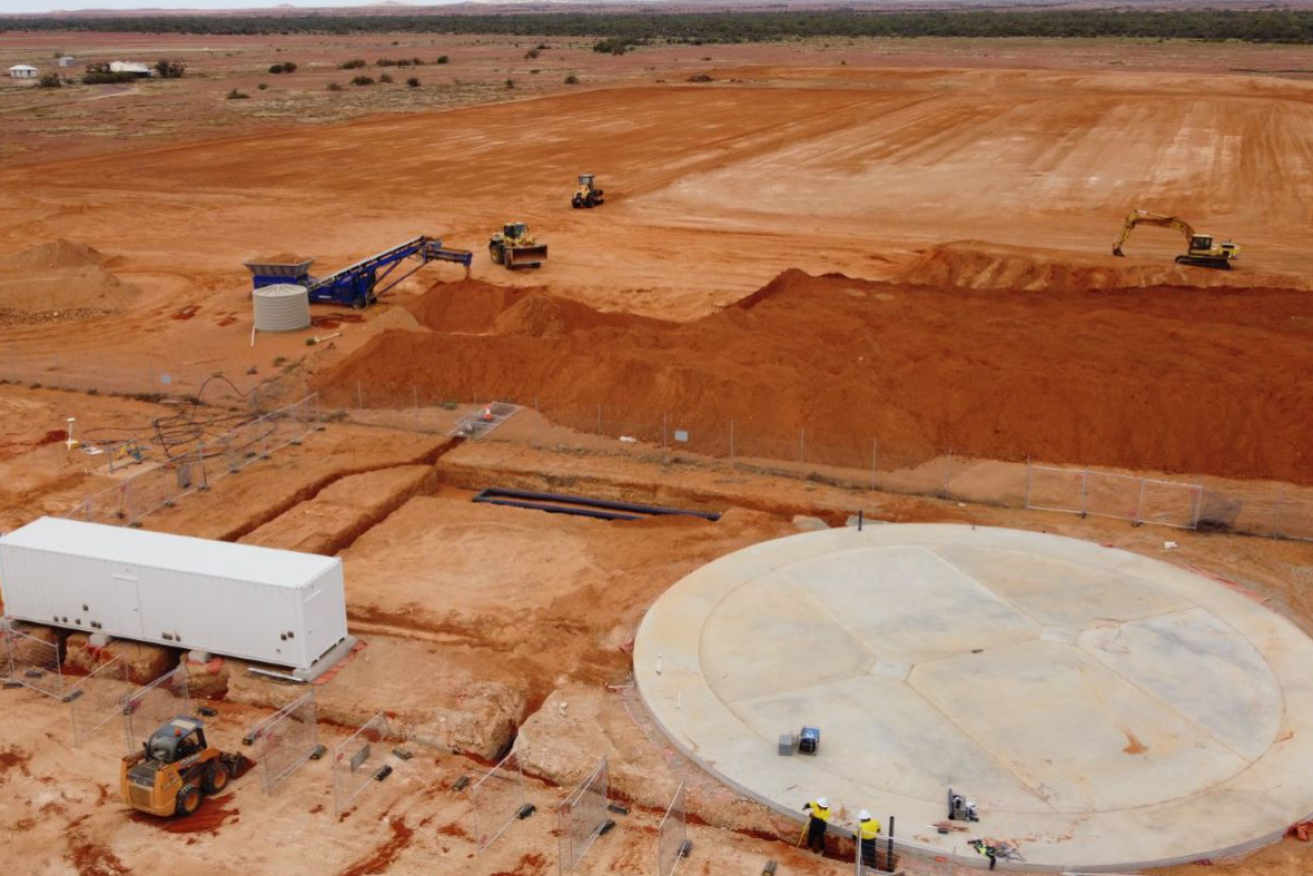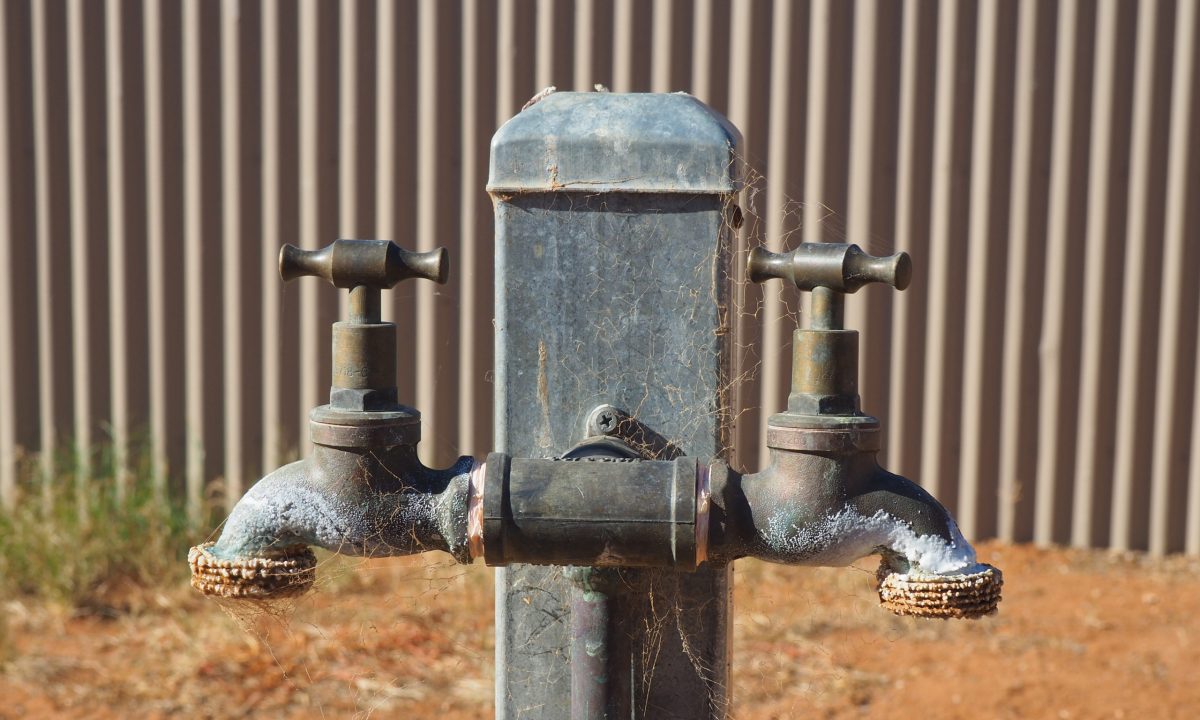After decades of waiting, Oodnadatta ‘on track’ for safe water next year
SA Water says it’s “on track” to start supplying safe drinking water to Oodnadatta by mid-next year, with residents of the outback town meanwhile still being charged $300 a year for potentially-fatal bore water.

The small-scale reverse osmosis desalination facility at Oodnadatta. Photo: SA Water
InDaily first reported in 2019 that households in Oodnadatta – a town of about 200 people in far-north South Australia – were each being charged standard prices for water which since the 1990s has been identified as a potential source of the parasite, naegleria fowleri.
When inhaled, the parasite can cause an infection that rapidly destroys brain tissue, prompting nausea, hallucinations, high fever and eventually, death.
While SA Water said no cases of naegleria fowleri infection had been officially detected in Oodnadatta, freedom of information documents sourced in 2019 revealed that the water had, over the previous decade, consistently exceeded national drinking water guidelines for recommended chloride, sodium, sulphate and total dissolved solid levels.
SA Water has warned residents since the 1990s that they should never drink the water, use it to brush teeth, wash food or get it up their nose as it could contain naegleria fowleri.
Air-conditioning units in the town are encrusted with a white salt-like substance from the water.
In June 2020 following advocacy from the Oodnadatta community and multiple InDaily reports, the Marshall Government committed $41 million to upgrade water supplies to 350 properties across regional SA, with Oodnadatta prioritised as the first town on the list.
SA Water this afternoon said it had made “significant progress” towards delivering a new drinking water supply to the town.
It said it had built a small-scale reverse osmosis desalination facility on Kurka Drive that would produce about 200,000 litres of drinking water for local customers each day.
The agency’s infrastructure, planning and strategy senior manager Dr Daniel Hoefel described the build as a “milestone”, saying the plant was “on track” to be switched on by mid-2023.
“Our team has spent more than two years undertaking the extensive planning, assessments and approvals required to deliver a project of this size and complexity, such as technical and engineering designs, community engagement, delivery contractor engagement and procurement,” he said.
“This also included the fabrication and testing of the containerised plant in metropolitan Adelaide over many months before recently making the 1000-plus kilometre journey to Oodnadatta.
“This is an exciting project that will make a significant difference to the daily lives of our local customers, and we look forward to delivering this project with the Oodnadatta community.”

Many of the taps in Oodnadatta are corroded with salt due to poor water quality. Photo: Stephanie Richards/InDaily
The reverse osmosis desalination facility will source water from the Great Artesian Basin and remove naturally-occurring impurities such as high levels of salinity, which are commonly found in many of Australia’s inland groundwater sources.
Once the water is filtered, it will be delivered to local households and businesses, with the saline by-product to be piped to a 200-metre-long onside evaporation basin.
SA Water said until the upgrades are complete, “residents will continue to source their own drinking water from private rainwater tanks, water carting, bottled products, and localised desalination units”.
InDaily has spoken to several Oodnadatta locals, who have complained of itchy and scarred skin which they said was caused by bathing in water currently supplied by SA Water.
Drinking rainwater is also out of the question for residents, with the SA Housing Authority warning against ingesting what it calls “undrinkable” and “unfiltered” rainwater from tanks at its leased properties.
The situation leaves Oodnadatta residents to choose between drinking the questionable bore or rainwater, buying expensive bottled water, or taking containers to a clean water outlet set up in the town’s main street, which the state government says is mainly for passing tourists and which costs $4 for 20 litres.
Desalination plants are also set to be built in the outback towns of Marla and Marree, with SA Water saying that work would be complete by 2024.




